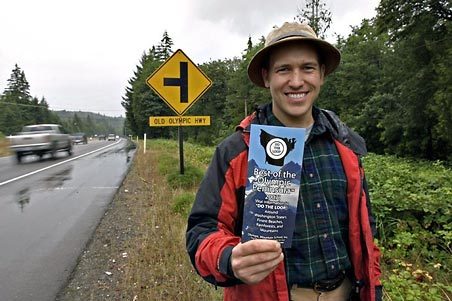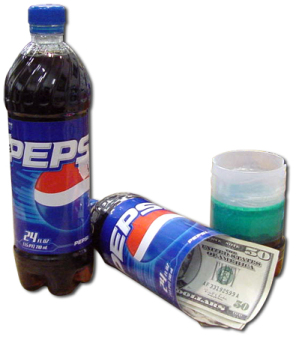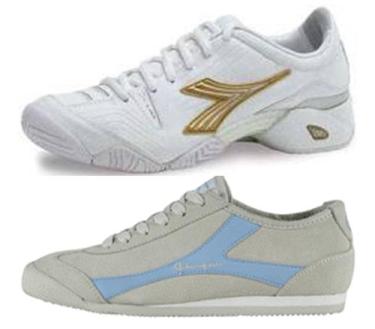Entries in Trademark Infringement (368)
Utah's Key Word Statute Remains Controversial
The August issue of InsideCounsel discusses Utah’s Trademark Protection Act, which prohibits the use of trademarks in key word advertising that another party has registered in the state as an Electronic Registration Mark. The Act, which was controversial from its inception in March (see STL posts here and here), remains controversial today.
The main problem appears to be that a state is trying to regulate what inherently is interstate commerce. Since search engines do not stop at state lines, Utah’s statute could suddenly make Google and other search engine providers liable for a new form of trademark infringement. Law blogger and professor Eric Goldman explains in the article that “The Utah law requires perfect geo-location technology, and no one has such technology.”
For this reason, the statute could slow interstate commerce, which leads Prof. Goldman to conclude that it violates the dormant Commerce Clause on its face. As a practical matter, he also thinks impeding search engines ultimately could hurt consumers.
“It might cause consumers to view a reduced set of materials in search results, which would channel their behavior to trademark owner-controlled options, reducing competitive options and causing consumers to pay higher prices.”
The article reports that Utah legislators met with critics in April to discuss a compromise but the two sides remain “far apart.” Utah House majority leader David Clark, who sponsored the bill, says that without such a compromise, “the referee in our system is the courts.”
Topline Obtains Injunction Enjoining Use of REPORT COLLECTION for Clothing
On August 3, the Western District granted Wash.-based shoe makers Topline Corp.’s and Report Footwear, Inc.’s motion for preliminary injunction against women’s 4273371 Canada, Inc., and Modextil, Inc., enjoining defendants’ use of REPORT COLLECTION as a trademark in connection with the advertising and sale of women’s clothing. In doing so, the court found plaintiffs were likely to succeed on the merits of their infringement claim against defendants based on Topline’s registered REPORT trademarks for footwear.
The case is not terribly remarkable for any particular trademark issue but the 21-page decision, filed August 13, is noteworthy for its detailed analysis of the Ninth Circuit’s test for likelihood of confusion under AMF, Inc. v. Sleekcraft Boats, 599, F.2d 341 (9th Cir. 1979), and for its discussion of the standard for granting preliminary injunctions. Judge Thomas Zilly, who decided the motion, also required Topline to post a $1 million bond.
The case cite is Topline Corp. v. 4273371 Canada, Inc., No. 07-938 (W.D. Wash.).
"Best of the Olympic Peninsula" Guide Runs Afoul of U.S. Olympic Committee
The Seattle Times today reports on a local author’s struggle with the U.S. Olympic Committee — all because he wrote a guidebook on Washington’s Olympic Peninsula. As the Times points out, “‘Olympic’ is attached to a seemingly endless stream of goods and services around here — not to mention Mount Olympus, the Olympic National Park, Olympic National Forest, and the state capitol, Olympia.”
For that reason, part-time park ranger Jason Bausher didn’t think there would be a problem when he published a guidebook to his favorite places on the Olympic Peninsula. His booklet is titled “Best of the Olympic Peninsula.”

Jason Bausher, near the Old Olympic Highway, holds his guide to which the USOC objects. Photo credit: Andrei Pungovschi/AP
The USOC nonetheless took issue with his book. It learned about Mr. Bausher and his guide when he applied to register BEST OF THE OLYMPIC PENINSULA with the Patent and Trademark Office. It then sent him letter demanding that he withdraw his application. According to Mr. Bausher, the parties’ last communication ended with the USOC suggesting it might sue him.
The Ted Stevens Olympic and Amateur Sports Act, 36 U.S.C. § 220501, et seq., vests with the USOC near monopoly rights over the words “Olympic,” “Olympiad,” “Paralympic,” “Paralympiad,” and other related words, regardless of whether the use causes a likelihood of confusion. Recognizing the geographic significance of “Olympic” in western Washington, however, Section 220506(d) of the statute also provides an exception for local businesses. The word lawfully can identify a business where “it is evident from the circumstances that such use of the word ‘Olympic’ refers to the naturally occurring mountains or geographical region of the same name that were named prior to February 6, 1998,” and the business’ goods or services are marketed “in the State of Washington west of the Cascade Mountain range and operations, sales, and marketing outside of this area are not substantial.”
Since Mr. Bausher’s booklet is new, and is marketed worldwide on the Internet, it does not appear to meet this exception. However, it seems nonsensical that a book about the best places on the Olympic Peninsula can’t call itself the “Best of the Olympic Peninsula.” Whether or not the statute excepts such fair use, the USOC should be used to Washington’s geographic designations by now. In 2010, the Winter Olympics will be held a stone’s throw from here in Vancouver, B.C.
Georgia Court Finds Disguised Bottle Safes Violate PepsiCo's Trademarks
Burglars take note: in the future, those bottles marked “PEPSI” in the fridge of the house you’re robbing probably contain nothing more than a carbonated drink. No secret stash there.
That’s because on July 20, the Northern District of Georgia found that defendant Sahni Enterprises, Inc., and its affiliates, makers of bottle and can safes, infringed and diluted plaintiff PepsiCo, Inc.’s PEPSI, DIET PEPSI, MOUNTAIN DEW, SIERRA MIST and AQUAFINA trademarks. The court made the same finding with respect to defendants’ food canister safes bearing plaintiff’s CHEETOS, DORITOS and FRITOS marks. After the parties stipulated to a preliminary injunction, the court permanently enjoined defendants from manufacturing and selling safes bearing PepsiCo’s marks.

The court explained: “The Infringing Safes marketed by Sahni are manufactured by converting genuine PepsiCo bottles, cans and canisters into separate and different products — concealment devices that contain hidden compartments — that are outwardly identical to PepsiCo’s products. Upon visual inspection, and even when handled, the Infringing Sales are indistinguishable from PepsiCo’s legitimate products.”
The court found: “The modification process for the can safes creates sharp edges where the can safe lid screws into the can body. These sharp edges can cut people who use the products. As part of PepsiCo’s quality control procedures, all cans undergo a thorough rinsing process to guard against contamination and ensure product safety. Sahni’s cans do not go through this quality control process.”
Without much further analysis, the court concluded that Sahni’s safes are likely to confuse consumers about the source or sponsorship of the safes. It also found the safes “dilute and tarnish the PepsiCo Marks because Sahni uses the marks on goods commonly associated with the concealment of illicit narcotics.”
I guess I have no real quarrel with this decision. But I just can’t help thinking the court seriously lacks a sense of humor.
The case cite is PepsiCo, Inc. v. # 1 Wholesale, LLC, 2007 WL 2142294, No. 07-367 (N.D. Ga.).
Payless Shoesource Sued Again for Infringement Over Athletic Shoe Logo
On July 27, athletic shoe maker Diadora S.p.A. and its Kent, Wash.-based subsidiary, Diadora America, Inc., filed suit in the Western District against Payless Shoesource, Inc., for trademark infringement, dilution, and unfair competition over Payless’ competing shoe logo. It is only five weeks since Payless settled a case with Brooks Sports, Inc., involving similar allegations. (STL’s coverage of that suit here and here.)
Diadora’s complaint alleges that in the last sixty days, Payless began manufacturing, promoting, offering for sale, and selling a new line of shoe called the CHAMPION® Idol Athletic that is substantially identical to Diadora’s shoe logo.

Diadora’s logo (top) and Payless’ allegedly infringing logo
The complaint states: “Diadora’s advertising and promotional activities involving its products bearing the Diadora Logo have been continuous and have been for the purpose of acquainting the public with the excellent quality of Diadora’s products so that consumers may, with knowledge and confidence, purchase and use products bearing the Diadora Logo. As a result, Diadora products bearing the Diadora Logo are well known, and the Diadora Logo has come to be and [is] recognized by the public as indicating that the products bearing the Diadora Logo originate with Diadora.”
 Diadora further alleges: “Payless’ use of the Infringing Logo, a mark substantially identical and therefore confusingly similar to the Diadora Logo, in a similar manner in connection with identical and highly related goods, constitutes trademark infringement” of its registrered trademarks including Reg. No. 1,324,537 (depicted above).
Diadora further alleges: “Payless’ use of the Infringing Logo, a mark substantially identical and therefore confusingly similar to the Diadora Logo, in a similar manner in connection with identical and highly related goods, constitutes trademark infringement” of its registrered trademarks including Reg. No. 1,324,537 (depicted above).
Payless has not yet answered Diadora’s complaint. It appears that Payless has removed references to the subject she from its Web site.
The case cite is Diadora S.p.A. v. Payless Shoesource, Inc., No. 07-1171 (W.D. Wash.).